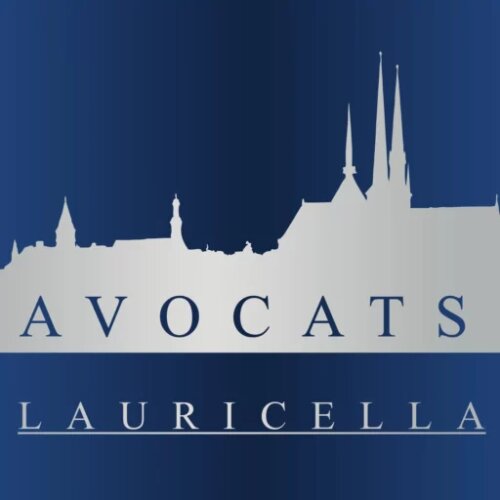Best Native People Lawyers in Luxembourg
Share your needs with us, get contacted by law firms.
Free. Takes 2 min.
Or refine your search by selecting a city:
List of the best lawyers in Luxembourg
About Native People Law in Luxembourg
Luxembourg is a multicultural and diverse country, renowned for its embracing of various cultural identities. However, the concept of "Native People" in Luxembourg is not aligned with the conventional understanding of indigenous peoples as found in countries like the United States, Canada, or Australia. In Luxembourg, the term often refers to the native Luxembourgish population, although within a legal context, it may concern the rights of the Romani or other marginalized communities. The nation practices equality and non-discrimination as per European norms, focusing on social inclusion and protection of minority rights, although not specifically defined as indigenous peoples. This means that individuals may still require legal advice regarding cultural rights, discrimination, or representation under Luxembourg law.
Why You May Need a Lawyer
Several situations might necessitate legal assistance in matters related to Native People or communities in Luxembourg:
- Experiencing discrimination or inequality at work or in accessing services.
- Ensuring fair cultural representation and linguistic rights in community settings.
- Resolving disputes involving land or property traditionally associated with native communities, although rare in Luxembourg.
- Navigating legal issues regarding cultural heritage or safeguarding traditional practices.
- Assistance with immigration or citizenship matters, especially for people belonging to minority groups.
Local Laws Overview
While Luxembourg does not specifically have laws under the title of 'Native People Law', the country accommodates various legal frameworks to protect minority groups:
- The Luxembourg Constitution guarantees equality and prohibits discrimination on various grounds, which extends to cultural and ethnic identities.
- European Union directives are applicable, which include aspects of anti-discrimination and rights for ethnic minorities.
- Various inclusivity policies strive to ensure active participation of diverse groups in public affairs, education, and cultural expressions.
- The Grand Duchy follows international treaties that seek to protect the rights of minority and indigenous peoples, although specific implementation can be limited due to the local context.
Frequently Asked Questions
Are there specific laws for Native People in Luxembourg?
No, Luxembourg does not have specific laws labeled under 'Native People'; however, the country upholds non-discrimination and equality as fundamental principles.
Can I practice traditional customs legally in Luxembourg?
Yes, practicing cultural heritage is generally supported as long as it adheres to national laws, public safety, and order.
What should I do if I face discrimination in Luxembourg?
You can seek help from legal services or organizations that specialize in discrimination cases, or file a complaint through appropriate governmental channels.
Does Luxembourg recognize Romani people as Native People?
The Romani community is recognized as an ethnic minority but not classified under 'Native People' within legal terms in Luxembourg.
Where can I find legal support specific to cultural rights?
You can contact legal professionals or organizations specializing in minority rights and cultural representation in Luxembourg.
Are there language protections for native Luxembourgish speakers in legal matters?
Yes, native Luxembourgish, French, and German are official languages, and you have the right to use them in legal matters.
Is there financial aid for legal services related to minority rights?
Legal aid is available for those who meet certain financial criteria in Luxembourg, which can cover issues related to minority rights.
Can international treaties impact local laws for Native People?
While Luxembourg abides by certain international treaties, local implementation focusing specifically on Native People may vary.
How does Luxembourg support multicultural integration?
The government pursues policies for social inclusion, cultural participation, and equal opportunity for all communities.
Who can offer mediation in cultural disputes?
Legal professionals or certified mediators familiar with multilingual and multicultural contexts can assist in such cases.
Additional Resources
There are several resources available for people seeking guidance on legal matters concerning minority rights and cultural issues:
- The Luxembourgish Ministry of Family Affairs, Integration and the Greater Region
- Ombudsman for Equality and Prevention of Discrimination (CENTRE FOR EQUALITY AND TREATMENT)
- Local non-profit organizations focusing on community rights and cultural heritage
- Legal aid services providing assistance in minority and anti-discrimination laws
Next Steps
If you require legal assistance related to Native People or minority issues in Luxembourg, consider the following steps:
- Identify the specific nature of your legal concern and gather relevant documentation.
- Contact an attorney with expertise in discrimination law, civil rights, or cultural heritage issues.
- Consult with community organizations that support minority rights for additional guidance and support.
- Review the resources and laws available to ensure you understand your rights under Luxembourg law.
- Consider mediation or alternative dispute resolution if appropriate for your situation.
Lawzana helps you find the best lawyers and law firms in Luxembourg through a curated and pre-screened list of qualified legal professionals. Our platform offers rankings and detailed profiles of attorneys and law firms, allowing you to compare based on practice areas, including Native People, experience, and client feedback.
Each profile includes a description of the firm's areas of practice, client reviews, team members and partners, year of establishment, spoken languages, office locations, contact information, social media presence, and any published articles or resources. Most firms on our platform speak English and are experienced in both local and international legal matters.
Get a quote from top-rated law firms in Luxembourg — quickly, securely, and without unnecessary hassle.
Disclaimer:
The information provided on this page is for general informational purposes only and does not constitute legal advice. While we strive to ensure the accuracy and relevance of the content, legal information may change over time, and interpretations of the law can vary. You should always consult with a qualified legal professional for advice specific to your situation.
We disclaim all liability for actions taken or not taken based on the content of this page. If you believe any information is incorrect or outdated, please contact us, and we will review and update it where appropriate.
Browse native people law firms by city in Luxembourg
Refine your search by selecting a city.













